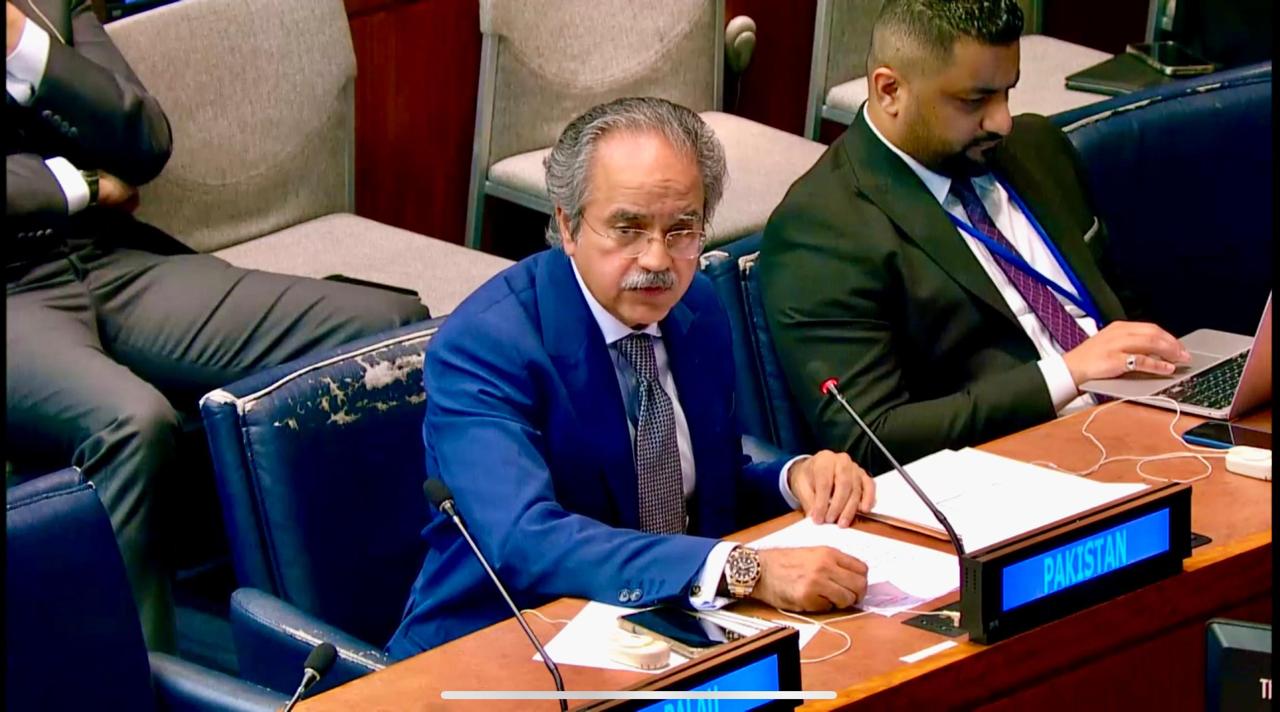UNITED NATIONS: Reaffirming that a just and peaceful international order depends on the consistent and universal application of international law, Pakistan told the UN Sixth Committee that impunity and selective adherence to legal norms undermine the rule of law across all conflicts – from Palestine to Kashmir.
Addressing the Sixth Committee on Agenda Item 84, “The Rule of Law at the National and International Level,” Ambassador Asim Iftikhar Ahmad, Pakistan’s Permanent Representative to the UN, highlighted that the rule of law is “the bedrock of human civilization and a force multiplier for socio-economic growth and prosperity.”
He noted that it is not merely a legal construct, but an indispensable moral and institutional anchor for advancing international peace and sustainable development.
Amid growing geopolitical competition and disregard for international law, he cautioned that the rule of law is being subverted by power politics and unilateralism. He further observed that such deliberate violations threaten to unravel the very legal order once deemed inviolable and pose grave risks to the global order.
“We are witnessing a disturbing rise of territorial aggrandizement and the erosion of norms once regarded as sacrosanct,” he said.
Citing the long-standing cases of occupation and repression in Jammu and Kashmir Kashmir and Palestine, where the defiance of the rule of law is most evident, the Pakistan Ambassador said that an end to impunity and decades-long occupations must begin with true adherence to international law – warning that without accountability, peace remains elusive.
Condemning India’s May 2025 aggression, Ambassador Asim termed it as “a grave breach of international law and a serious violation of Pakistan’s sovereignty,” which claimed the lives of 54 innocent civilians, and underscored the urgent need for stricter application of international law.
Pakistan’s defensive – proportionate and lawful action was undertaken strictly in line with Article 51 of the UN Charter, reaffirming the country’s commitment to legal norms even in the face of provocation.
In noting that peace and development are inextricably linked to the rule of law, he reiterated Pakistan’s own commitment to the pacific settlement of disputes – a principle advanced through Security Council Resolution 2788 adopted unanimously under Pakistan’s presidency earlier this year.
He further stressed that “Security Council resolutions are themselves a part of international law and impose binding obligations on Member States,” adding that preserving its integrity through consistent implementation “must be ensured in all cases.”
Marking the 80th anniversary of the UN, he called for the democratization of international law to ensure emerging norms remain inclusive and equitable, rather than “exclusive, restrictive, or discriminatory.” He reaffirmed that Pakistan remains guided by the Charter’s founding tenets – sovereign equality, self-determination, non-use of force, and non-interference – as the moral and legal basis of multilateral cooperation.
Ambassador Asim ended the statement by reiterating Pakistan’s resolve to uphold a rules-based international system, underlining that strengthening the rule of law is imperative to “wean our world off anarchy, strife and conflict, and move us towards cooperation for maximizing global peace, development and stability.”


Comments are closed.